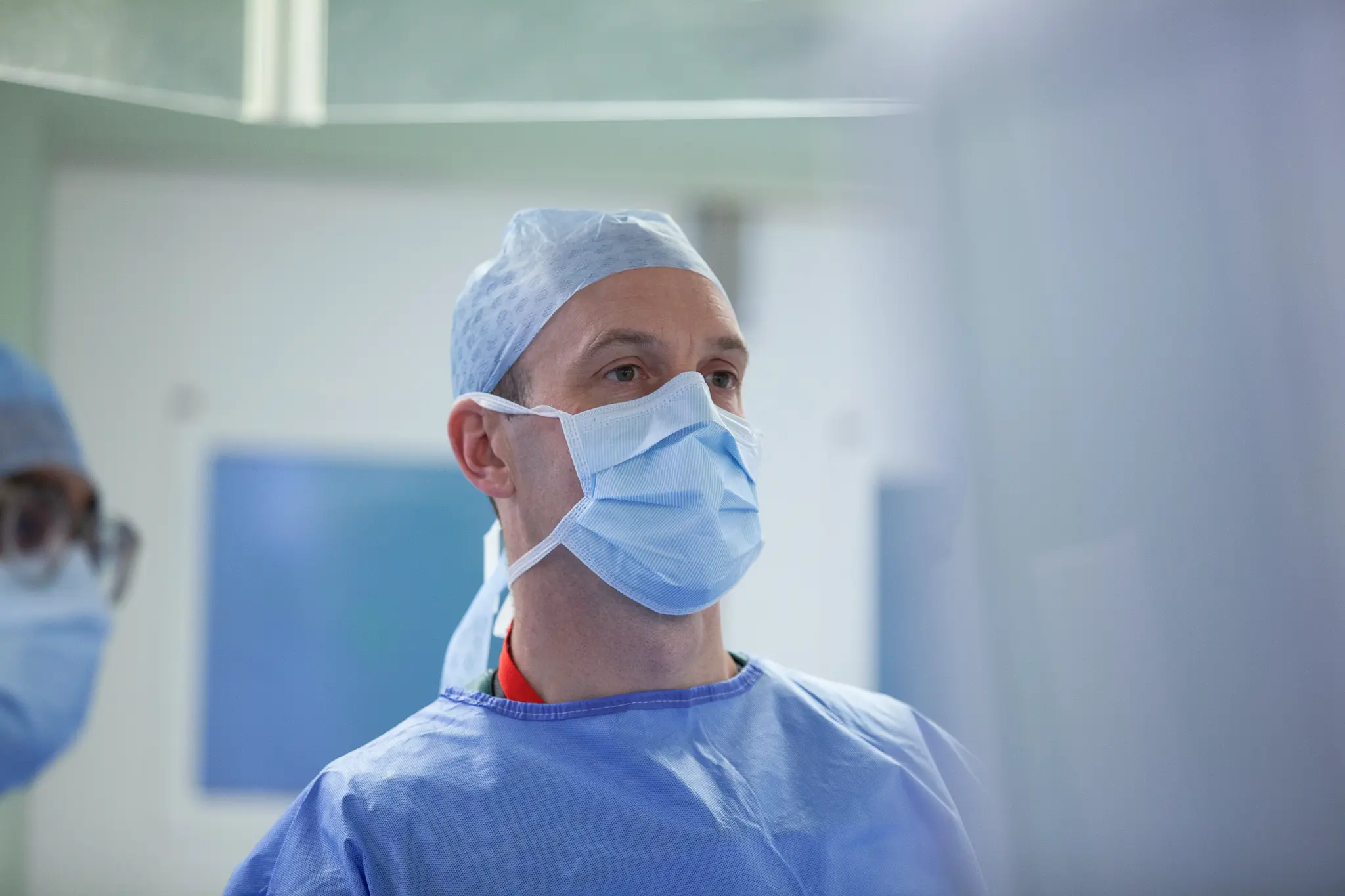

Mr Toby Baring has extensive experience in shoulder replacements,sports injuries, rotator cuff problems and shoulder and elbow fractures; performing 300-400 procedures per year.
Mr Baring practises the most modern techniques, and constantly looks to improve and innovate treatment to enhance his patients’ recovery and outcomes.
Mr Toby Baring is a consultant trauma and orthopaedic surgeon and senior honorary lecturer at Imperial NHS Trust
He qualified from Newcastle Medical School. During his specialist training he undertook postgraduate doctorate in 2006 with Professor Roger Emery at Imperial College London, focusing on rotator cuff surgery.
His postgraduate orthopaedic training was on the Royal National Orthopaedic Hospital rotation in north London, and he passed the FRCS in 2012.
He was fellowship trained in Nice, France with world renowned shoulder specialist, Professor Pascal Boileau.
Mr Baring now practices specialist shoulder and elbow surgery, using the most modern surgical techniques with an emphasis on arthroscopic rotator cuff and shoulder instability surgery and primary and revision shoulder replacement.
Our dedication to excellence is recognized through prestigious awards and professional certifications, showcasing our commitment to quality, expertise, and innovation.





- Rotator cuff tendinopathy
- Rotator cuff tears
- Shoulder arthritis
- Frozen shoulder
- Calcific tendonitis
- Subacromial bursitis
- AC joint arthritis
- Impingement

- Tennis elbow
- Golfers elbow
- Elbow instability
- Cubital tunnel syndrome
- Elbow arthritis
- Olecranon bursitis

- Acute AC joint injury
- Chronic AC joint injury
- Shoulder dislocation
- Multidirectional shoulder instability
- SLAP tear
- Rotator cuff avulsion tear
- Distal biceps rupture

- Clavicle fractures
- Shoulder fractures
- Proximal humerus fractures
- Humeral shaft fracture
- Elbow fractures
- Forearm fractures
- Wrist fractures
- Upper limb non-union
One Welbeck, King Edward Vii's Hospital and the Hospital of St John and Elizabeth.
Remote consultations can be arranged if necessary.
Mr Baring has clinics Monday to Thursday every week.
Children under the age of 13 are seen at the Hospital of St John and Elizabeth's only, children over 13 years old can be seen at One Welbeck.
We work with a range of insurers: Aviva, Axa Health, Aetna, Healix, Cigna, Simply Healthcare, Bupa, Allianz Care, WPA, Vitality
There are many causes of shoulder pain, both intrinsic to the shoulder but also referred from other parts of the body, e.g. neck and heart. There are about five common pathologies seen in the shoulder from damage to ligaments, calcium deposits, frozen shoulders, rotator cuff tendon damage and osteoarthritis (wear and tear), and this tends to change with age Young adults tend to suffer from ligament damage which may be sports related, in the elderly population we tend to see tendon problems and arthritis.
This is a common condition seem typically between the ages of 45 and 55, occurring slightly more in women. It is scarring up and stiffening of the deepest layer of tissue in the shoulder – the capsule. It mainly comes on randomly but can be triggered by either trauma or surgery. We know there is a strong genetic component and more recently we have identified a gene associated with it which increases the risk of developing it. It causes a restriction in range of movement and considerable pain, especially at night. Thankfully it is a benign, self limiting condition which, in most cases, responds well to active treatment.
As a rule tendon start to degenerate from the age of about 40. The speed at which this occurs is highly variable between people depending on subtle differences in genetic make up. it is less to do with occupation or activities, but we do know that remaining active and regularly exercising has a protective effect. Usually tendons degenerate to the point they are weak enough to tear spontaneously – it is less common that tendon damage is caused by direct trauma. The size of the tear, age of the patient and activity level will determine treatment, but in many cases tears do not need surgical repair.
Like any joint in the body the shoulder has the ability to wear out overtime – essentially this is thinning of the articular cartilage (very smooth surface covering the bones), which leads to increased friction and inflammation. As the condition progresses new bits of bone form round the side of the joint (osteophytes) which start to limit the movement of the shoulder. Often the condition can be treated with steroid injections but ultimately advanced arthritis may need a shoulder replacement.
This is highly variable depending on what sort of surgery but a minor procedure such as shaving away a bone spur or removing inflammatory tissue can take a few weeks. More complex procedures like rotator cuff repairs and shoulder replacements can take between six and nine months.